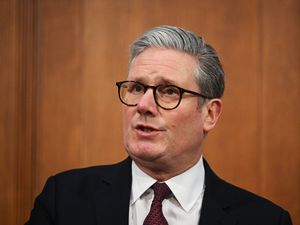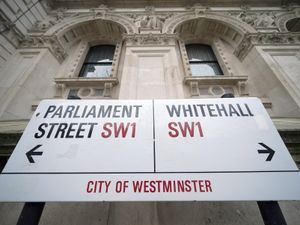Aston Martin to set aside £30 million to deal with Brexit
The luxury car manufacturer reported pre-tax losses of £68.2 million for 2018 against profits of £85 million in 2017.

Luxury car manufacturer Aston Martin Lagonda has revealed plans to set aside up to £30 million to help it weather Brexit disruption as it posted a £68.2 million annual loss.
The maker of cars favoured by spy James Bond said its board had given the go-ahead for the fund as it steps up contingency planning for a possible no-deal Brexit.
In its first set of annual results since floating last October, the firm added it was taking action to “mitigate the impact on the business from potential supply chain disruption should the UK withdraw from the European Union without an agreement or in an unstructured manner”.
The comments came as it reported the hefty pre-tax losses for 2018, against profits of £85 million in 2017, due to £136 million of costs for its stock market debut.
Shares fell 9% in morning trading as Aston also cautioned that underlying earnings are set to be lower in the first half of 2019.
Aston said: “Since our third quarter trading update in November 2018, geopolitical and economic uncertainties have increased.
“In response, we have put contingency plans in place to protect production and customer deliveries should the UK leave the European Union without an agreement or in an unstructured manner.”
Aston said it had so far spent only a “minimal” amount on contingency plans and had committed but not spent around £2 million on revised supply chain routes.
The results showed a 26% rise in wholesale car sales by volume in 2018 to 6,441, while revenues lifted 25% to £1.1 billion.
It confirmed aims to increase wholesale volumes to between 7,100 and 7,300 in 2019.
With costs of its initial public offering stripped out, the group saw underlying operating profits rise 18% to £146.9 million.
Andy Palmer, Aston Martin Lagonda president and group chief executive, said: “2018 was an outstanding year for Aston Martin Lagonda, delivering strong growth, with improving revenues, unit sales and adjusted profits.”
He added the group was navigating “uncertainties and disruption impacting the wider auto industry”.





